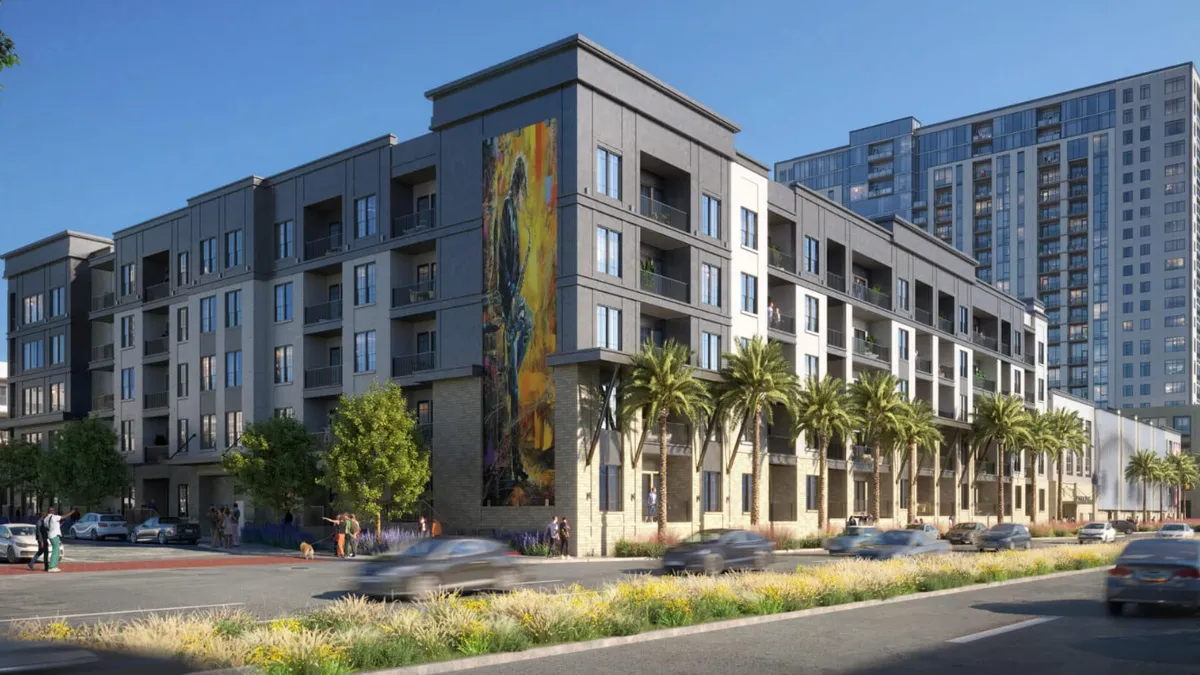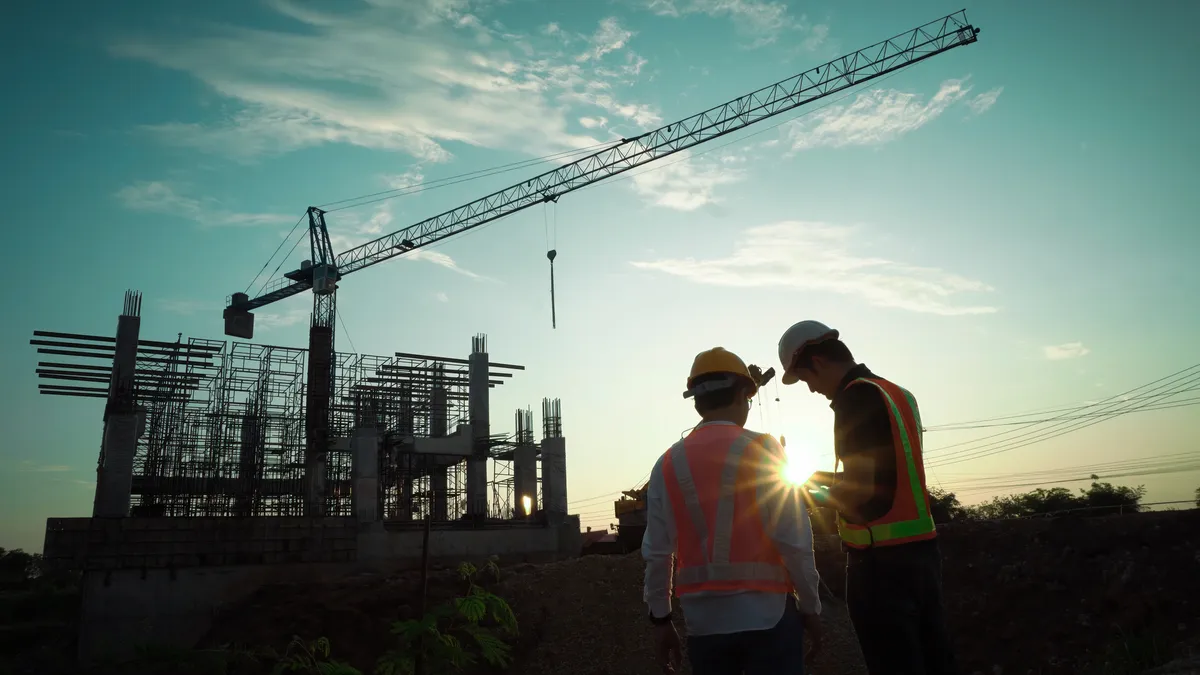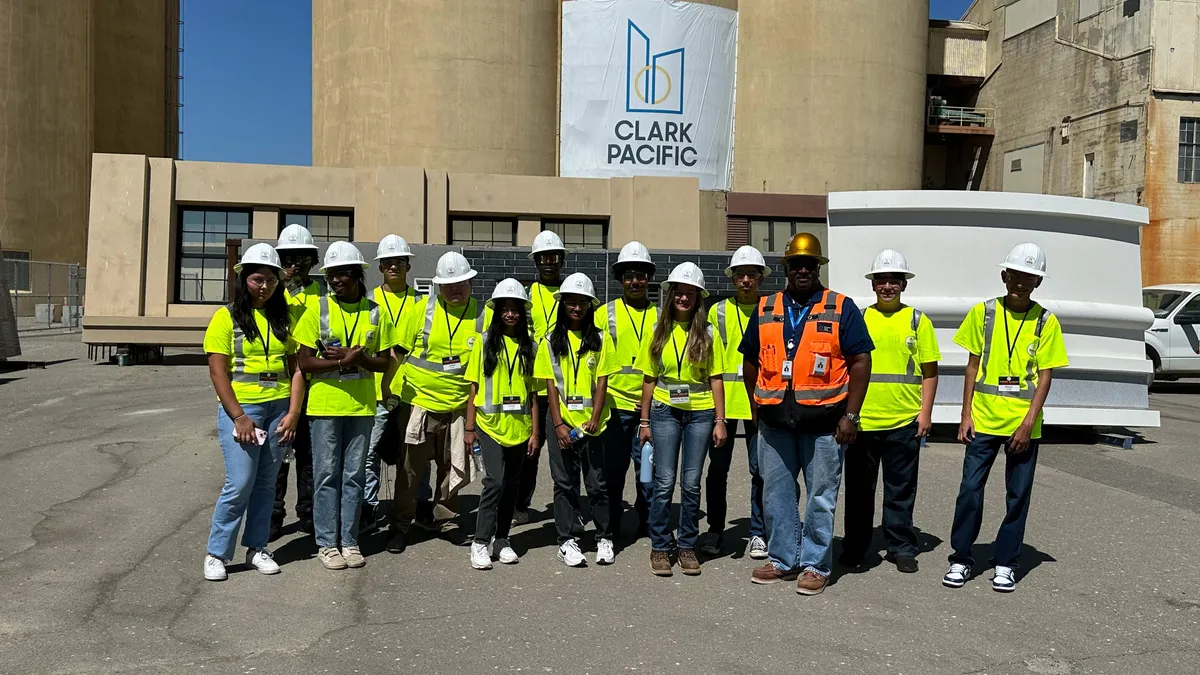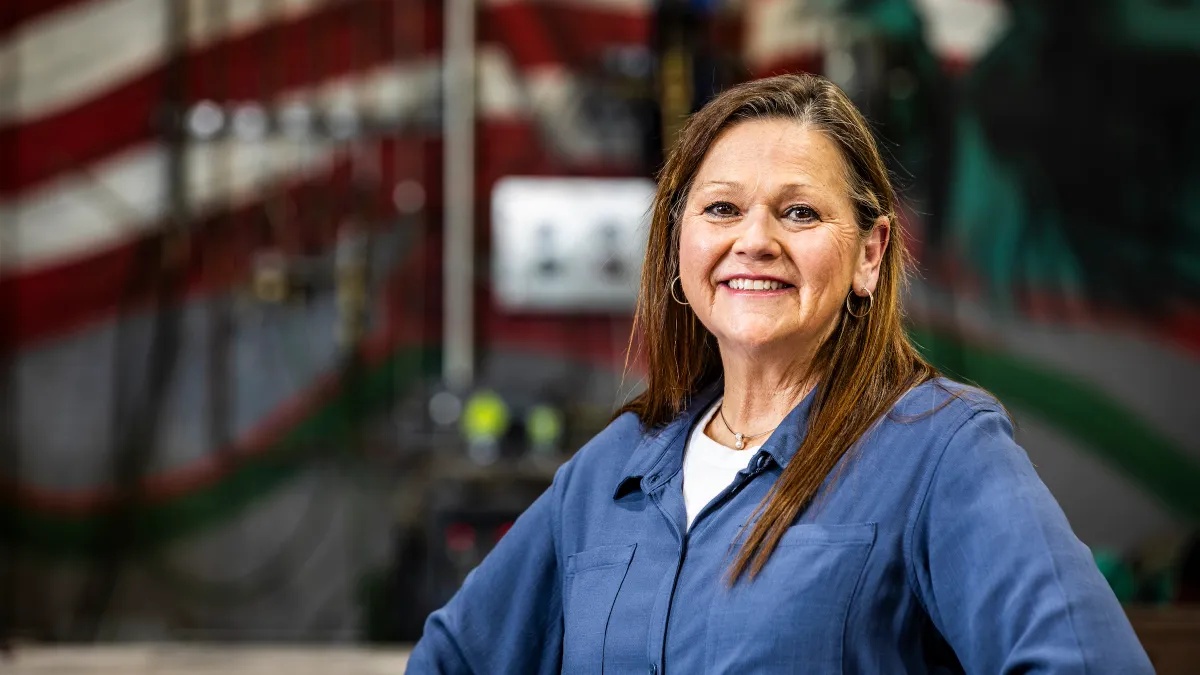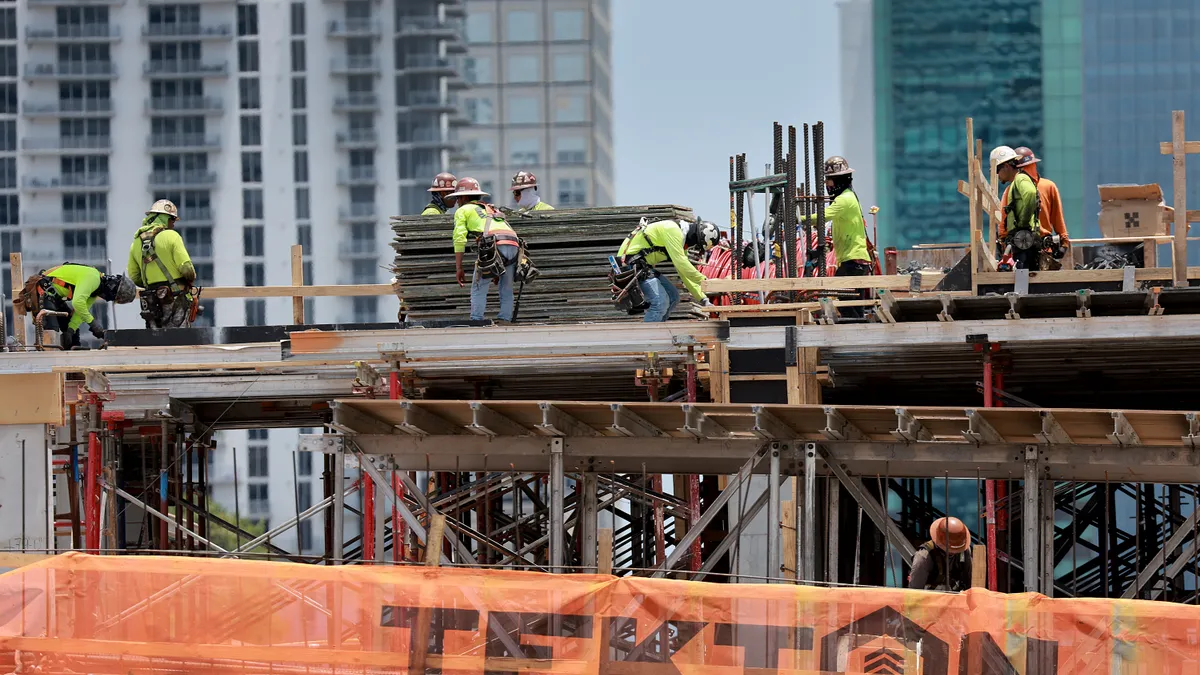ORLANDO, Florida — For a practice that demands “collaboration on steroids,” it’s no wonder that the nation’s largest modular building-focused conference and expo brought under one roof some 900 architects, offsite manufacturers and experienced builders amid a looming pandemic that’s been derailing events all over the world.
It’s also no surprise that the crux of the Modular Building Institute's World of Modular conference here this week wasn’t about stressing the benefits of modular to convert newcomers, nor about competition for market share and safeguarding proprietary practices, but about industry-wide collaboration.
Heard in multiple presentations and in networking conversations was the call for the group to crystalize disparate efforts and beliefs into industry standards and practices and to shape a narrative that can be marketed beyond the insular niche to attract more market-defining customers and to weave regulators, insurers, lenders and other influential outside players into the fabric of modular’s future.
Modular is open for business, if it can market itself
“We’ve got to make it clear we are open for business” Rhys Kane, sales director of Canadian modular builder Horizon North, said during a presentation Wednesday that demonstrated his firm’s rise to the top of his country’s market and also stressed the idea of growing modular together.
Kane, who made the steroids quip, said actors involved in a modular building project need to get on the same page, through resources that educate design teams and general contractors and by being more effusive with tours of facilities for partners, enhancing word- of-mouth campaigning among slow-to-adopt architects, increasing data transparency from factory floor to corner office and stepping up creative marketing to get a seat at the table among other bidders.
But to do this and more, he said, modular and offsite builders need to first standardize systems, designs and details among each other; help create industry-standard contracts; win over political and YIMBY support such as what’s been seen in Europe, Australia and Japan; make more headlines to show potential, like what was seen with China’s coronavirus-driven modular hospitals; start attracting consistent lending support; and get “serial builders” like Marriot, for example, to make big waves by promoting the method themselves.
The net result of this unified force, he said, is greater economies of scale, lower building costs and a bigger pipeline, and only then, when that’s fully in place, does a healthy level of competition, and the benefits that come from it, really come into play. It’s a chicken or egg situation, he explained. “The clients don’t come without the proven, easily-repeatable success stories, but we can’t establish that without a pipeline of projects.”
Before all that, though, the industry needs to confirm it’s identify, Kane and other speakers remarked.
It's about the service, not the product
“We often don’t know what business we’re in, just what product we sell,” John Lekfus, president of Rad Technology Medical Systems said, “and all the while, we put too much faith that if we sell more of that product, it will cost less. But when you get too focused on a single product or service, you start neglecting to see what the client wants.”
Modular suffers from “marketing myopia,” he continued, a theory derived from Harvard economist Theodore Levitt, based on the idea that businesses will do better if they focus on meeting customers’ needs rather than on selling products.
Henry Ford famously said that customers, if asked, would just say that they wanted a faster horse, Lekfus continued. Take train ticketing systems, for example. Lefkus explained that train tickets went from paper suppliers, who were in the paper business, to faster, easier self-serve machines, served by companies that supplied machines, then on to smartphone apps, from providers in the app game, and will next move to a facial recognition-dominated service fueled by providers of facial recognition technology systems. All of those players were disrupted by the next; he said, because they all focused on the product they were providing rather than the service that the client needed, which simply boils down to “access to the train.”
There’s confusion about what modular is, he continued, with terms like prefabricated, offsite, permanent or temporary, full-volumetric and so on floating around not just in the construction industry but in public-facing platforms such as Forbes' 101 piece, which he said gets a number of things wrong. Sometimes these terms mistakenly create divisions where there shouldn’t be, he said, or find themselves used synonymously when they’re not. All of this exacerbates the confusion.
So instead of leaning into the modular product you produce or even its process, think about the customer, he implored attendees. Though clients seem to be inhibiting modular adoption, it shouldn’t be as much of a factor, he said. Customers care about getting a building constructed faster, cheaper and with better quality, the equivalent to the Ford example of “a faster horse." They don't care as much about how it’s built. Like the train ticketing analogy, he concluded, “Tell customers you provide access to the built environment,” and rely on the values and strengths of the process you’re confident in to deliver a faster horse to provide that access.
Other countries are already delivering faster horses to the U.S. market, explained Frank Yang, principal of ADL Ventures, partially because of the culture and standardized practices that have been better formed in their respective markets. But the U.S. is not far behind, he continued, thanks to new alliances and joint efforts.
Take the Advanced Building Construction program, or ABC, for example, Yang purported. ABC, funded by the Department of Energy, is advancing the industry narrative and culling together industry-wide efforts to educate the market about the benefits of modular, and players should get involved, he explained on behalf of his firm, which helps pair emerging and disruptive technology providers with legacy industries such as construction.
ABC, which launched last month, has in its mission statement that it will “help the U.S. remain globally competitive in high-performance prefabricated and modular approaches … by [bringing] together builders, architects and engineers, manufacturers, building owners and developers, trade associations and workforce training programs, government, research institutions,, financiers and insurers, and utilities to align stakeholders and accelerate the development, demonstration, standardization, and deployment of innovative high-performance construction technologies."








